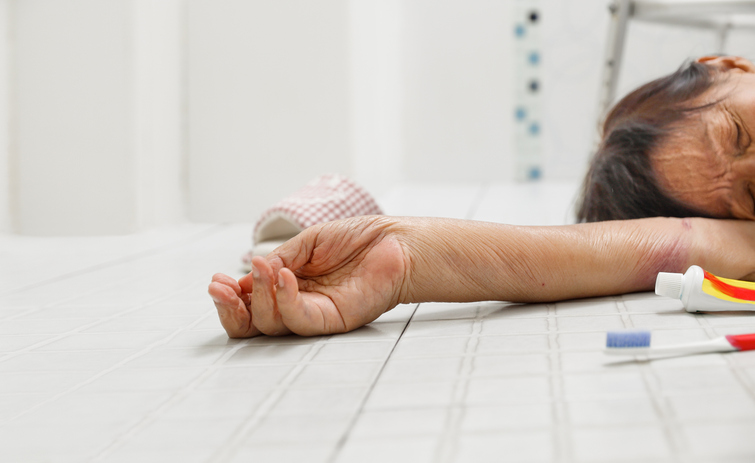A recent Ottawa Citizen article tells the story of Marion Wright, who found herself in a dire situation after falling in her home. She spent three agonizing hours on the floor, unable to get up or reach her phone for help. It wasn’t until her granddaughter arrived that she was able to receive assistance. At Queensway Carleton Hospital, Wright learned she had multiple fractures in her pelvis. The future looked uncertain and Ms. Wright felt her independence slipping away with her mobility gone.
“I couldn’t move, I was completely immobilized. It made me feel older than I am,” Wright shared.
However, her outlook began to change after a few days when the hospital’s Get Moving team started working with her. They taught her essential skills like sitting up, getting out of bed, standing with a walker, and walking around the hospital. They also introduced her to exercises she could perform in bed. This daily support and encouragement played a critical role in her journey back to independence.
“I could not have literally got moving without them,” Wright acknowledged.
Today, Wright is back to living independently. She walks without assistance, attends aquafit classes, and continues to work. “They are incredible,” she said of the therapists and health workers. “They are there every day, seven days a week, which is amazing. Without them, I don’t think I would have recovered anywhere near as well.”
The Challenge of Hospital Stays for Older Adults
Pelvic fractures pose significant risks for older adults, as do hip fractures, often leading to long-term physical disabilities or even death. Hospital stays are frequently associated with reduced mobility and muscle loss due to prolonged inactivity, particularly for older adults. Each day spent in bed can result in days of effort needed to regain lost mobility and muscle mass. Some older adults who enter the hospital mobile leave unable to walk, which can drastically affect their ability to live independently.
Changing Outcomes with Mobility Programs
Queensway Carleton’s Get Moving program aims to alter this outcome for high-risk patients. Launched in November 2022, the program has supported over 1,200 patients by promoting mobility and encouraging movement. The program staff ensures that patients are out of bed for all meals and use the bathroom independently, with assistance as needed. The team operates throughout the hospital from 7 a.m. to 7:30 p.m., providing continuous support.
These interventions have shortened hospital stays, improved health outcomes, and received positive feedback from patients and their families. The hospital uses the functional independence measure to track progress, assessing patients’ disability levels and need for assistance with daily activities like eating or grooming as well as their ability to communicate and socialize. The program has consistently shown improvements in these scores from admission to discharge, with the most notable gains in locomotion.
Building Confidence and Independence
For patients like Marion Wright, the program has been a confidence booster. Wright credits the daily activities and support for her quick recovery and improved physical condition. The program also provided her with much-needed social interaction and a sense of control over her life.
Queensway Carleton is among several hospitals in the province with similar programs focused on maintaining patient mobility and independence during hospital stays. While the Get Moving team is not permanently funded, hospital officials remain optimistic about its future due to its success and ongoing discussions with Ontario Health.
The Broader Impact on Healthcare
The aging population in Canada is growing rapidly, impacting healthcare systems significantly. At Queensway Carleton, 29% of emergency department visits are by individuals aged 65 and over, who make up 62% of all hospital admissions from the emergency department. By reducing hospital stay lengths and promoting mobility, these programs can greatly enhance individual lives and alleviate emergency department congestion.
Comprehensive Elderly Care
Queensway Carleton’s commitment to geriatric care extends beyond the Get Moving program. The hospital’s acute care for the elderly (ACE) unit provides a senior-friendly environment focusing on maintaining mobility and function for patients over 65. This approach aims to help patients return home and retain their independence.
The hospital has also introduced a behavior support program in its emergency department, emphasizing dementia care and caregiver support. This initiative aims to prevent patient deterioration during long waits and provide reassurance to caregivers.
Programs like Get Moving at Queensway Carleton Hospital and Hospital to Home at St. Marys General Hospital, which allows care for patients in their own homes, are transforming senior care by focusing on mobility and independence. Through consistent support and encouragement, these programs help older adults regain their strength and confidence, significantly improving their quality of life. Combined with home modifications to make the home work with instead of against the abilities of older adults, such initiatives are crucial in maintaining dignity and independence which can allow older adults to remain in their own homes and communities longer.






Add Your Voice
0 Comments
Join the Discussion